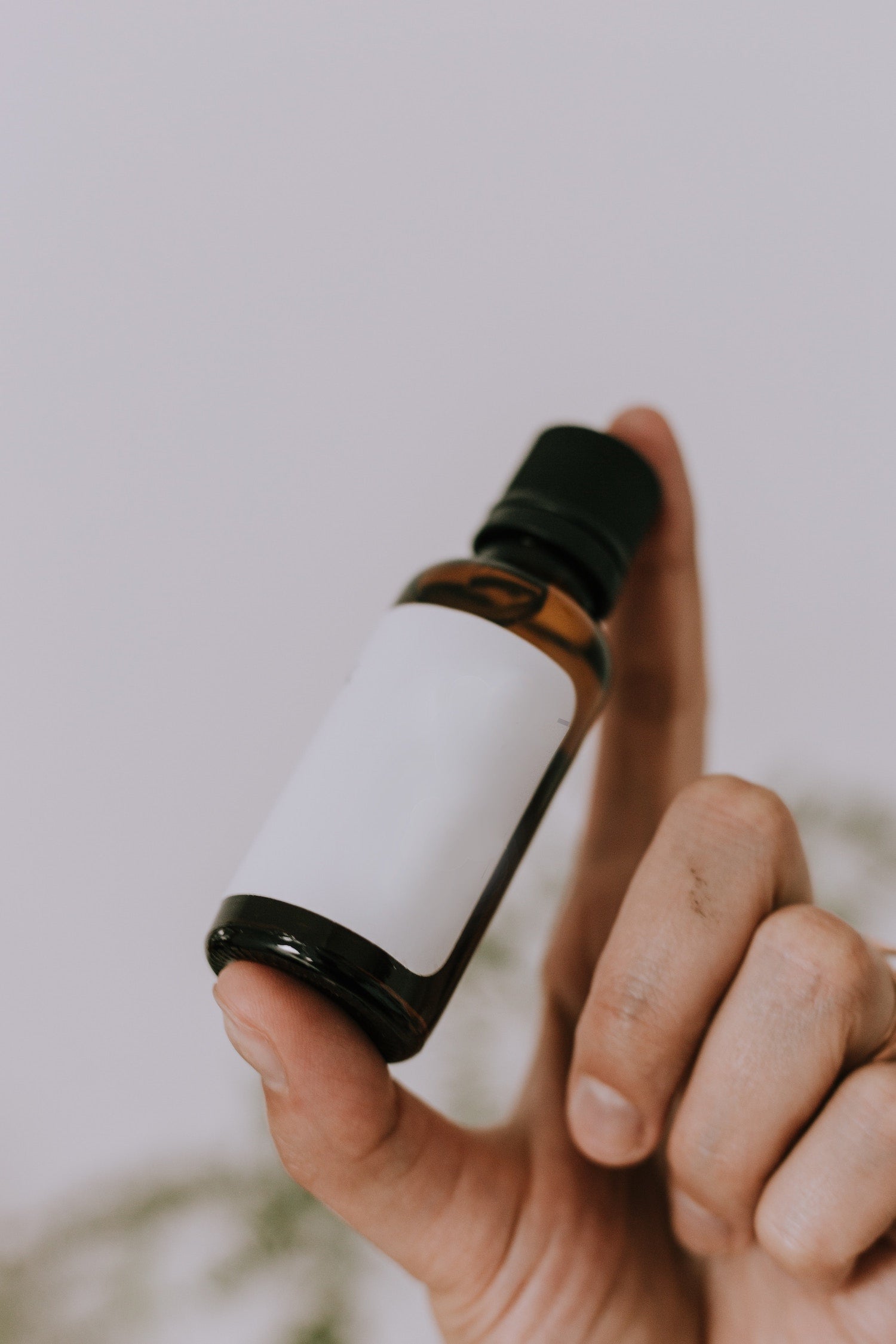Unless you live under a nice quiet rock (lucky you), you’ve probably heard about an ingredient called Manuka honey - made by bees that feed on the Manuka trees of New Zealand.
Manuka is packed with antioxidants, antimicrobials, and other nutrients that can keep your skin healthy. It helps fight inflammation and blemishes and supports healthy skin.
What makes Manuka unique among honey is that, in addition to hydrogen peroxide, it also contains a powerful compound called methylglyoxal. Methylglyoxal that may be an even stronger antibacterial agent than hydrogen peroxide. In fact, there’s support that it may even be effective at fighting particularly strong bacteria, like the staph bacteria MRSA or even e.coli.
When it comes to your skin, the presence of those powerful antibacterials could be a tremendous benefit. In fact, antibiotics are frequently used to support healthy skin and combat blemishes, Impetigo and infections.
It's Also A Natural Anti-Inflammatory
Another benefit of Manuka honey is that it can be a natural anti-inflammatory, which is a crucial aspect of skincare. This is because your skin is an organ—in fact, it’s your body’s largest organ. And like your other organs, it works with your body’s immune system to keep you healthy.
When your immune system is triggered, for example, by things like infections or allergens, your skin can react by producing compounds that kill bacteria and viruses. But these compounds also may cause inflammation, which is itself an immune response. It’s your skin’s attempt to isolate harmful agents until they can be dealt with.
The most common sign of skin inflammation is the presence of rash or redness, blisters or pimples, itchy, scaly, or dry skin. In many cases, inflammation caused by bacteria is the root cause of common acne. That means Manuka honey can be effective in keeping blemishes under control and reducing breakouts that could otherwise potentially lead to acne scars.
Healing Properties
The natural healing properties of Manuka honey can be effective tools for wound healing, soothing damaged skin, and getting your complexion back on track.
But why might Manuka honey be effective in restoring damaged skin? There are two key ways that this special nectar may promote healing:
-
Fibroblasts – There is support that Manuka honey could encourage the production of special cells called dermal fibroblasts. These cells could help your skin grow connective tissues and be crucial in helping your skin recover from cuts, scrapes, and other wounds.
-
Moisture – Manuka honey helps keep your skin moisturised, which helps your skin heal. It also can help your skin to create a natural barrier to protect it while it heals.
You don’t have to have suffered a dangerous injury to seek the reported healing properties of Manuka honey. Blemishes and breakouts can often leave painful wounds and sores, which Manuka honey could also help alleviate.
Relieves Physical Discomfort
There’s evidence to suggest that relief may be among the many Manuka honey skin benefits. In fact, in a 2018 study, when applied to oral suture wounds after tooth removal, Manuka was effective in decreasing the amount of physical discomfort participants experienced.
This is good news for your skin because many skin issues, from everyday blemishes to serious conditions can be quite painful. Treating your skin with Manuka honey may be a natural way to get some relief.
Soothes Dry Skin
Manuka honey can help relieve dry, flaky, scaly, or rash-prone skin. In studies, Manuka honey was shown to significantly improve lesions as well.
Moisturises
One of the best things you can do for your skin is to keep it moisturised. From reducing dryness and eliminating oiliness to concealing blemishes, your skin needs moisture to perform—and look—its best. Fortunately, Manuka honey may be able to help.
Why is Manuka honey good for skin when it comes to moisturization? It’s simple: Manuka honey contains humectants, which are vital substances found in sugar and other foods. Humectants draw moisture from the air and from the dermis layer of your skin to the outer layer, or epidermis.
Skin Softening
You may be able to use Manuka honey to achieve skin that’s soft and supple. In part, this is thanks to those humectants we mentioned earlier—when skin is moisturised, it’s less likely to become rough, hard, or cracked from dryness, itching, and irritation. But it’s also thanks to the honey’s emollient properties. Emollients are substances that fill the spaces between skin cells with reparative lipids that may promote soft, smooth skin.
Reducing Signs of Ageing
Considering that Manuka honey reported benefits include reducing inflammation, fighting bacteria, and promoting healing and moisturisation, it’s no wonder that another reported benefit is to help reduce the signs of aging, like wrinkles and discolouration caused by age spots.9
Primarily, this is because Manuka contains:
-
Antioxidants – Manuka honey has antioxidant properties, which are great for your skin. Antioxidants can help skin heal when exposed to harmful free radicals, and some even contain collagen, which helps keep skin looking young.
-
Hydrogen peroxide – As mentioned above, Manuka, like all honey, contains hydrogen peroxide, which is known for its bleach-like qualities. This suggests that Manuka could be beneficial in improving a range of skin discolourations.
We aim to provide you with the most honest and credible information possible. This article was reviewed for accuracy and was written based on trusted sources that are linked below!
Sources:
Magazine, S. (2013, August 22). The science behind Honey's Eternal Shelf Life. Smithsonian.com. Retrieved June 7, 2022, from https://www.smithsonianmag.com/science-nature/the-science-behind-honeys-eternal-shelf-life-1218690/
Eteraf-Oskouei, T., & Najafi, M. (2013, June). Traditional and modern uses of natural honey in human diseases: A Review. Iranian journal of basic medical sciences. Retrieved June 7, 2022, from https://www.ncbi.nlm.nih.gov/pmc/articles/PMC3758027/#
Cleveland Clinic. (2022, March14). 5 Benefits of Manuka Honey. Clevelandclinic.org. Retrieved June 7, 2022, from https://health.clevelandclinic.org/manuka-honey-benefits/
Hayashi, K., Fukushima, A., Hayashi-Nishino, M., & Nishino, K. (1AD, January 1). Effect of methylglyoxal on multidrug-resistant pseudomonas aeruginosa. Frontiers. Retrieved June 7, 2022, from https://www.frontiersin.org/articles/10.3389/fmicb.2014.00180/full
Madormo, Carrie. (2021, April 16). Skin Inflammation: Causes and Treatments. Very Well Health. Retrieved June 7, 2022, from https://www.verywellhealth.com/skin-inflammation-5095859#
Seladi-Schulman, Jill. (2019, March 7.) Skin Inflammation: Causes, Diagnosis, Treatment, and More. Healthline. Retrieved June 7, 2022, from https://www.healthline.com/health/skin-inflammation#symptoms
Rud, Melanie. (2022, January 20.) Benefits of Manuka Honey For Acne. Byrdie. Retrieved June 7, 2022, from https://www.byrdie.com/manuka-honey-for-skin-4776793#citation-4
Kisiel, M. A., & Klar, A. S. (2019). Isolation and Culture of Human Dermal Fibroblasts. Methods in molecular biology (Clifton, N.J.), 1993, 71–78. Retrieved June 7, 2022, from https://doi.org/10.1007/978-1-4939-9473-1_6
Al-Kahanati, Nuraldeen M., & Al-Moudallal, Yasser. (2018, August 9.) Effects of Intrasocket Application of Manuka Honey on Post-Surgical Pain of Impacted Mandibular Third Molars Surgery: Split-Mouth Randomized Controlled Trial. Journal of Maxillofacial and Oral Surgery. Retrieved June 7, 2022, from https://link.springer.com/article/10.1007/s12663-018-1142-z
Mayo Clinic. (2020, June 12.) Atopic dermatitis (eczema). Retrieved Jun 7, 2022, from https://www.mayoclinic.org/diseases-conditions/atopic-dermatitis-eczema/symptoms-causes/syc-20353273
Alangari, A.A., Morris, K., Lwaleed, B.A., Lau, L., Jones, K., Cooper, R. and Jenkins, R. (2017). Honey is potentially effective in the treatment of atopic dermatitis: Clinical and mechanistic studies. Immunity, Inflammation and Disease, 5: 190-199. Retrieved Jun 7, 2022, from https://doi.org/10.1002/iid3.153
Burlando, Bruno, & Cornara, Laura. (2013.) Honey in dermatology and skincare: a review. Journal of Cosmetic Dermatology. Retrieved June 7, 2022, from https://pubmed.ncbi.nlm.nih.gov/24305429/
Saling, Joseph. “Manuka Honey: Medicinal Uses, Benefits, and Side Effects.” WebMD, WebMD, https://www.webmd.com/a-to-z-guides/manuka-honey-medicinal-uses




